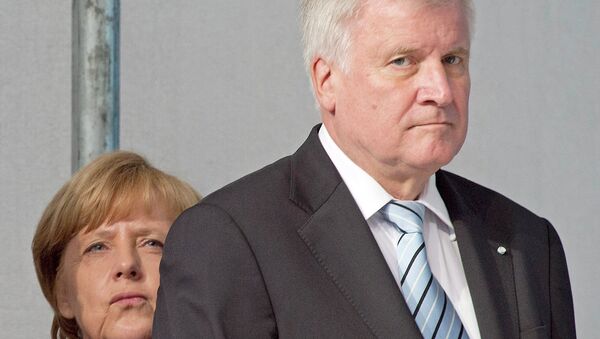Briefly after the German ruling coalition partners, Merkel's CDU and SPD, managed to reach a common ground on migration issues by agreeing to turn down certain asylum-seekers on the basis of bilateral agreements with other EU countries, German Interior Minister Horst Seehofer again restated his plan for unilateral actions. In an interview with Der Spiegel he said that in case no bilateral deals are struck to return migrants to the countries where they originally applied for asylum, Germany would have to return to a plan to turn down migrants at its border.
Seehofer's actions have drawn wide criticism in German society. A petition calling for his resignation, published on the Change.org platform on July 6 by one of the country's social workers, had gathered 40,000 signatures in a matter of hours.
READ MORE: CDU/CSU Migrant Deal Unlikely to Become Gain for Seehofer, Merkel — Politicians
Germany's political parties also haven't refrained from scolding the interior minister. Burkhard Lischka, the interior affairs spokesman for the Social Democratic Party (SPD), told German newspaper Rheinische Zeitung that Seehofer has to "clean up the mess" that he created in the last several days.
Christian Lindner, the head of the Free Democratic Party (FDP), said that the minister's row with his coalition party cost Germany its reputation and forecasted that it would cost Seehofer, who is also the head of the CSU party, votes during the next elections. The co-head of the Green Party/Union 90, Robert Habeck, has scolded Seehofer for allegedly putting his personal agenda above the stability of Germany.
READ MORE: Merkel-Seehofer Dispute Signals EU ‘Political Crisis', Not Migration Problem
Germany's interior minister and head of the Bavarian Christian Social Union (CSU), Horst Seehofer, has demanded that Chancellor Merkel, who is the leader of the CSU's long-lasting ally — the Christian Democratic Union (CDU), took steps towards solving migration issues in the country, threatening to resign otherwise.
Many German political analysts have suggested that such an ultimatum may lead to a collapse of the ruling coalition. The CDU and SPD later reached an agreement to return certain migrants to the countries where they first applied for asylum, in case such bilateral agreements are reached with other EU member states.


